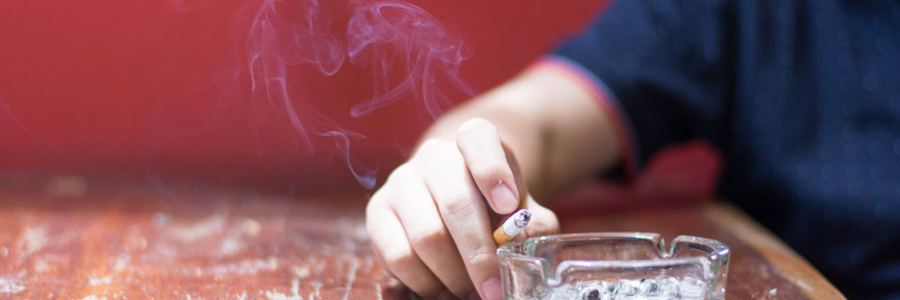Secondhand smoke is deadly. Here’s how to avoid it.

Did you know? Even non-smokers are at risk for developing lung cancer, thanks in large part to secondhand smoke exposure.
In fact, about 3,000 non-smokers die from lung cancer every year because of exposure to secondhand smoke. And another 46,000 die every year because of heart disease caused by secondhand smoke.
What makes secondhand smoke so dangerous?
The same chemicals that a smoker inhales are also transmitted through secondhand smoke, making it dangerous to those in the environment. Tobacco is dangerous enough, but the added ingredients are even worse. In fact, there are more than 250 toxic chemicals found in secondhand smoke, including formaldehyde, cadmium and cyanide, all of which can be harmful when inhaled.
Are children at risk?
Yes! Infants and toddlers under the age of 2 who are exposed to secondhand smoke are at an elevated risk to die from sudden infant death syndrome, or SIDS.
Additionally, other lung-related illnesses, such as pneumonia, bronchitis and asthma, are more common in children who are exposed to secondhand smoke at an early age. Children exposed to secondhand smoke are hospitalized more often than kids raised in non-smoking homes.
What should smokers do about secondhand smoke?
First and foremost, if you smoke, do whatever you can do to quit. It’s the best thing you can do for yourself and your loved ones, especially your children. Here are 11 strategies for quitting tobacco.
If you must smoke, go outside. Stay away from windows and doorways to minimize your family’s exposure to the toxic fumes of cigarettes. Never smoke in your home or in your car, and don’t allow visitors or passengers to smoke either.
How else can I decrease my family’s exposure to secondhand smoke?
Insist on going only to smoke-free restaurants, hotels and child-care facilities.
If you are visiting friends and family who smoke, ask to meet somewhere other than their home, or ask them to remove ashtrays from your vicinity.
You may also encourage a smoke-free policy at your workplace by discussing it with your employer.




